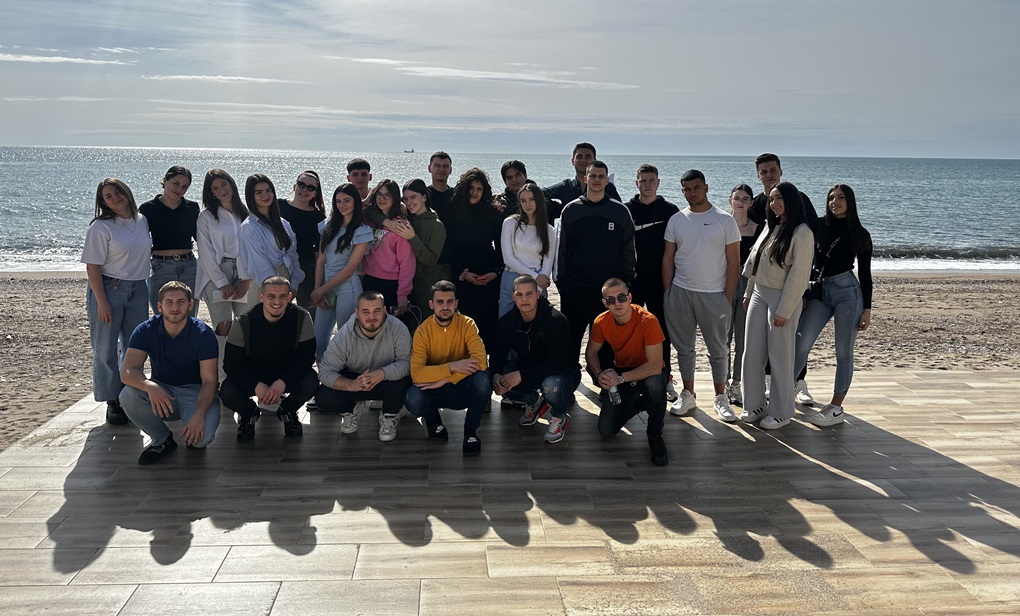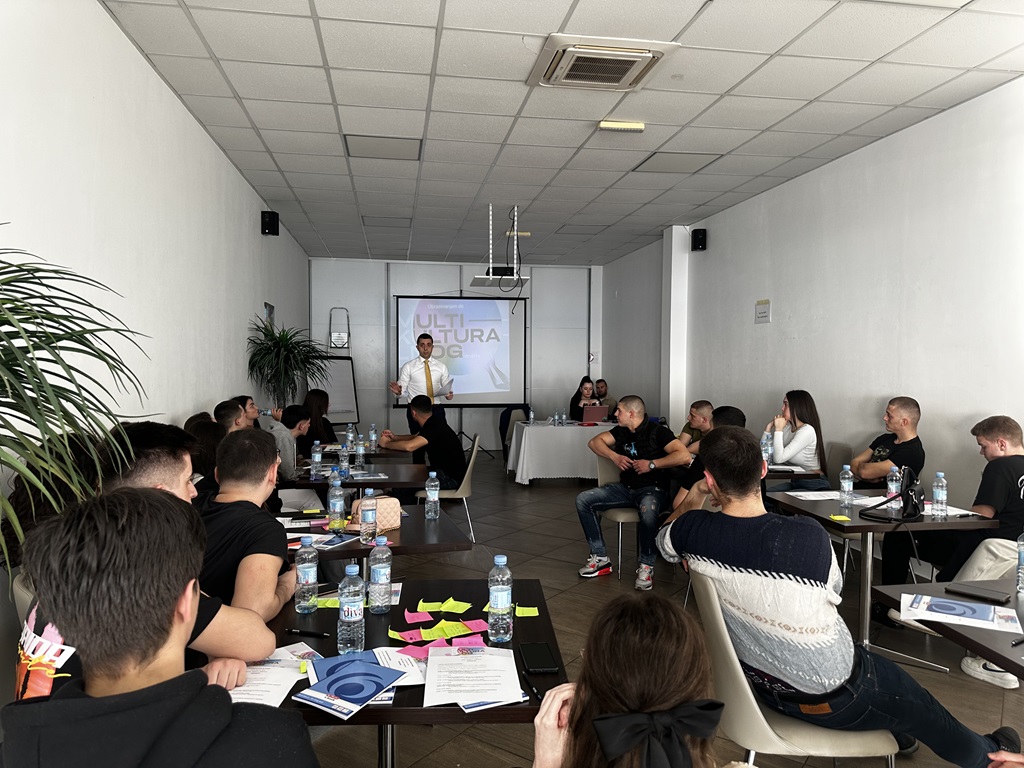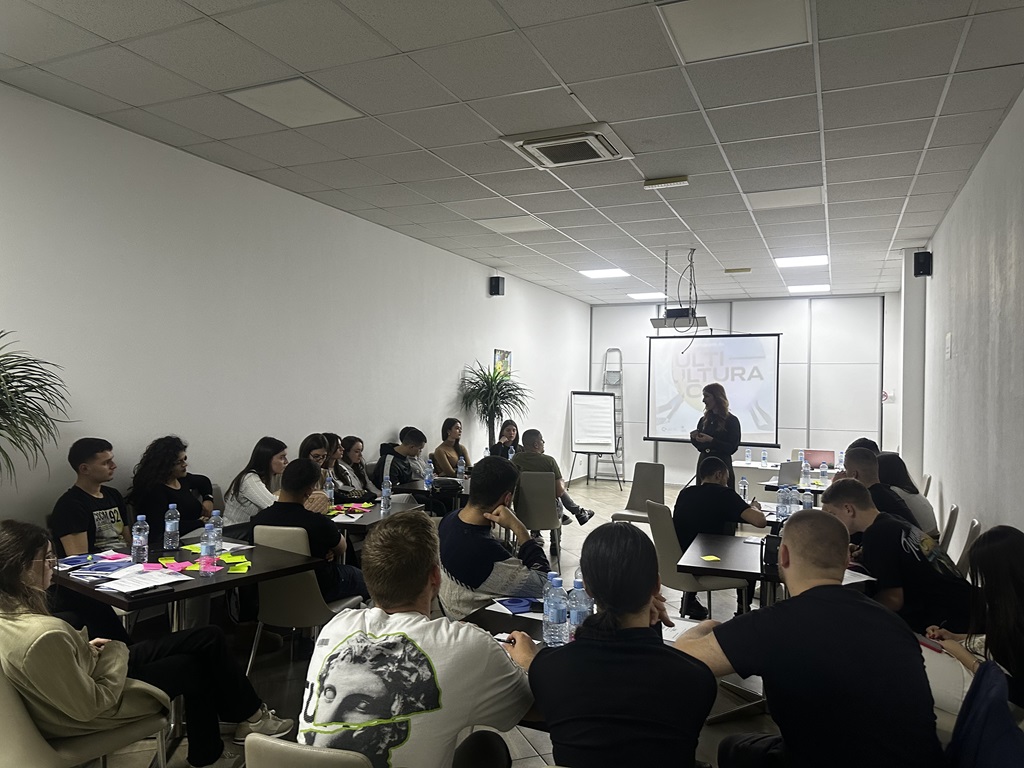Alternative education programmes are important for young people, and they themselves emphasize the transformative experience gained from the Intercultural Camp, organized by the Centre for Civic Education (CCE) in Sutomore, from 26 to 28 February 2024, within the project “Education for a multicultural society”, with the support of the Fund for Protection and Realization of Minority Rights.
During the interactive and intensive three-day programme, 25 high school students from 11 Montenegrin municipalities (Bar, Budva, Kotor, Podgorica, Danilovgrad, Nikšić, Pljevlja, Berane, Rožaje, Bijelo Polje, and Plav) learned about mechanisms for advocating intercultural dialogue, understanding diversity, empowering tolerance and dialogue, as well as peaceful conflict resolution. They worked with lecturers from the formal educational system, civil sector, and institutions.
“At the intercultural camp, I experienced a fantastic journey through different cultures, and new friendships became the foundation of my experience. Through active participation in workshops, I gained skills in open communication and tolerance, which gives me a deeper understanding of the world around me. This camp has shaped my view of diversity and given me tools for constructive collaboration,” says Ahmedin Kalač, a graduate of the “30 September” Gymnasium in Rožaje, who was one of the participants in the Intercultural Camp.
Sumeja Džudžević, who also participated in this programme, shares similar impressions. “At the intercultural camp, I felt the power of community, where friendships were formed beyond the boundaries of language and culture. Through various workshops, I gained communication and understanding skills that are crucial for global connectivity. Now I feel ready to actively contribute to a diverse and inclusive world,” she says.
“This Intercultural Youth Camp is an exceptional opportunity that enriches with diversity and dialogue. Through direct encounters with different cultures, I discovered layers of understanding and respect. I learned how to successfully collaborate in a multicultural environment, developing communication and teamwork skills. This has expanded my horizons, but also deeply embedded lasting values that will accompany me through my personal and professional journey,” assesses Emina Adrović, a participant in the Intercultural Camp.
Neđeljko Đurović, a professor at the Economic and Hospitality High School in Bar and a civic activist, was one of the lecturers in the three-day programme. “Activities like the Intercultural Camp, organized by the Centre for Civic Education, are a good example of how representatives of the civil sector analyze certain topics and promote them among the younger population, because they are often not adequately addressed in the media or the educational system. I am happy that young people show interest in these topics, and these are truly exceptional opportunities where they can exchange experiences and learn something they rarely hear in their environment,” he notes.
“This program is extremely important for young people who are growing up and forming their personality and attitudes in a very divided society, where hate speech is an everyday occurrence. Active, tolerant, and supportive young people are the foundation of an intercultural society that multicultural Montenegro strives for. In addition to the knowledge they need for quality civic and youth participation, they have gained valuable insight into the needs of marginalized communities and had the opportunity to network for further activist engagement and exchange of experiences and resources,” assesses Sofija Kirsanov, activist, who was one of the lecturers at the Intercultural Camp.
The programme was successfully completed by: Faris Markišić, Aldin Feratović, Milena Raičković, Aleksandar Obradović, Ahmedin Kalač, Izet Šutković, Hamza Avdić, Emina Adrović, Sumeja Džudžević, Said Canović, Eleonora Halilović, Amra Ramdedović, Branko Šaranović, Ahmed Bektešević, Aldin Kordić, Tarik Prekić, Andrijana Šćepanović, Ognjen Bismiljak, Andrea Karadžić, Elena Vitić, Luka Pejaković, Andrija Milošević, Božana Vidović, Nikoleta Konatar, and Marija Gegović.
Damir Suljević, Programme Associate



